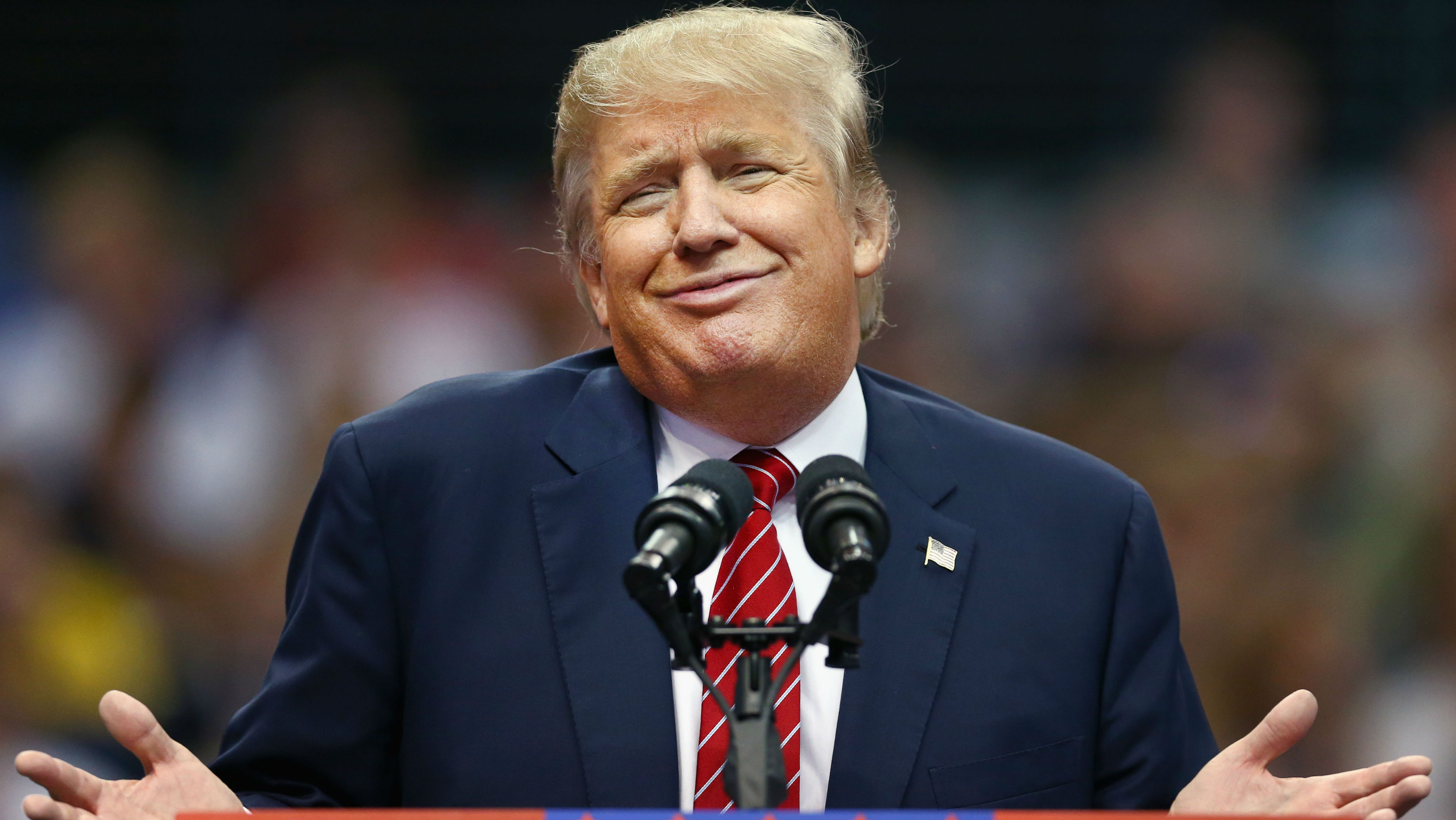Trump health check: would you pass the Montreal cognitive test?
President aced ten-minute routine screening but how reliable is it?

A free daily email with the biggest news stories of the day – and the best features from TheWeek.com
You are now subscribed
Your newsletter sign-up was successful
Donald Trump’s doctor has announced that the US president received a perfect 30 out of 30 score on the Montreal Cognitive Assessment, a tool that screens patients for mental conditions including Alzheimer’s disease and mild cognitive impairment.
White House physician Ronny Jackson says he has “absolutely no concerns” about Trump’s cognitive ability, the brain-based skills needed to carry out both simple and complex tasks.
But what is the Montreal test, and is it conclusive?
The Week
Escape your echo chamber. Get the facts behind the news, plus analysis from multiple perspectives.

Sign up for The Week's Free Newsletters
From our morning news briefing to a weekly Good News Newsletter, get the best of The Week delivered directly to your inbox.
From our morning news briefing to a weekly Good News Newsletter, get the best of The Week delivered directly to your inbox.
Studies show that the test can be used to spot problems with the brain’s executive functioning “even before other signs of mental decline are apparent”, The Washington Post says.
Although the standard Montreal test is “pretty good”, it is “not definitive”, Dr Ronald Petersen, an Alzheimer’s disease expert at the Mayo Clinic in Rochester, Minnesota, told Reuters.
The Alzheimer’s Association says the disease is not detected through just one test but through a complete assessment that considers possible causes.
The 30-point Montreal test takes about ten minutes and requires patients to perform memory and other mental tasks, CNN says. Participants are asked, for example, to draw a line between a number and a letter in ascending order; to draw a clock and put numbers on it; and to remember a list of common words.
A free daily email with the biggest news stories of the day – and the best features from TheWeek.com
People with a good or average memory generally forget one of the five words and are still within the normal range, Dr James Mastrianni, an expert in neurodegenerative conditions, told Reuters.
What the Montreal test does not do is assess psychiatric fitness - and Trump did not undergo a psychiatric evaluation, according to his doctor.
-
 Labor secretary’s husband barred amid assault probe
Labor secretary’s husband barred amid assault probeSpeed Read Shawn DeRemer, the husband of Labor Secretary Lori Chavez-DeRemer, has been accused of sexual assault
-
 Trump touts pledges at 1st Board of Peace meeting
Trump touts pledges at 1st Board of Peace meetingSpeed Read At the inaugural meeting, the president announced nine countries have agreed to pledge a combined $7 billion for a Gaza relief package
-
 Britain’s ex-Prince Andrew arrested over Epstein ties
Britain’s ex-Prince Andrew arrested over Epstein tiesSpeed Read The younger brother of King Charles III has not yet been charged
-
 Epstein files topple law CEO, roil UK government
Epstein files topple law CEO, roil UK governmentSpeed Read Peter Mandelson, Britain’s former ambassador to the US, is caught up in the scandal
-
 Iran and US prepare to meet after skirmishes
Iran and US prepare to meet after skirmishesSpeed Read The incident comes amid heightened tensions in the Middle East
-
 Israel retrieves final hostage’s body from Gaza
Israel retrieves final hostage’s body from GazaSpeed Read The 24-year-old police officer was killed during the initial Hamas attack
-
 China’s Xi targets top general in growing purge
China’s Xi targets top general in growing purgeSpeed Read Zhang Youxia is being investigated over ‘grave violations’ of the law
-
 Panama and Canada are negotiating over a crucial copper mine
Panama and Canada are negotiating over a crucial copper mineIn the Spotlight Panama is set to make a final decision on the mine this summer
-
 Why Greenland’s natural resources are nearly impossible to mine
Why Greenland’s natural resources are nearly impossible to mineThe Explainer The country’s natural landscape makes the task extremely difficult
-
 Iran cuts internet as protests escalate
Iran cuts internet as protests escalateSpeed Reada Government buildings across the country have been set on fire
-
 US nabs ‘shadow’ tanker claimed by Russia
US nabs ‘shadow’ tanker claimed by RussiaSpeed Read The ship was one of two vessels seized by the US military